Are you expecting too much from your relationship or are you asking for too little? Are you accepting the bare minimum in a relationship, or not even that, despite giving it all you’ve got? Well, but how does one define the minimum expectations in a relationship? And how can you make your partner live up to your expectations in your relationship? Has your relationship or love life been reduced to a boring one, amid high-flying careers, household chores, and responsibility for kids? Are you left begging for the bare minimum and don’t remember the last time your partner made you feel special?
If your relationship is in stand-by or survival mode, where your partner isn’t giving you more than the basics (or not even that), read on. With the help of emotional wellness and mindfulness coach, Pooja Priyamvada (certified in Psychological and Mental Health First Aid from Johns Hopkins Bloomberg School of Public Health and the University of Sydney), who specializes in counseling for extramarital affairs, breakups, separation, grief, and loss, to name a few, we have tried exploring ‘bare minimum relationships’ and jotted down a few actionable tips to help you manage one. We’ll also help you make your partner understand
how to do more than the bare minimum in a relationship. So, without much delay, let’s dive in…
What Is The Bare Minimum In A Relationship?
Table of Contents
It’s quite difficult to define ‘bare minimum’ in a relationship. To define it broadly, the bare minimum is the sum total of the minimum requirements in a relationship. And this can vary from person to person, depending on their experiences, value system, their level of investment in the relationship, and the desire to make it work.
Our expert Pooja says, “Giving just the bare minimum means maintaining the status quo in a relationship, with minimum or no emotional input. It might lead to a partner feeling devalued and under-prioritized. This can dent the communication and intimacy between the couple and make it seem as if they are leading two different lives even while living together.”
We’ll look at how the bare minimum changes with someone’s life stage or personality. A person would naturally set a lower standard for their relationship if they intend to make it work no matter what, and this could be due to multiple reasons:
- Someone who suffers from low self-esteem can latch onto a bare minimum relationship
- A person may be too emotionally invested in the relationship to leave their partner for not giving the bare minimum
- People may have attachment and abandonment issues, stemming from childhood abuse, and may not be able to let go of a partner who makes low effort in a relationship
- People with common responsibilities, such as a child or a disabled parent, may keep a relationship going based on the bare minimum in the long run
- Lack of an independent financial resource can lead people to depend on each other and continue a bare minimum relationship
On the other hand, some people set high standards and may not accept the bare minimum at all. Some such instances are:
- A person just out of a toxic relationship has a low tolerance for a bare minimum boyfriend or girlfriend
- People who are aware of what they want in terms of life goals or compatibility often don’t get into bare minimum relationships
Related Reading: 12 Realistic Expectations In A Relationship
15 Examples Of Bare Minimum Standards In A Relationship
From accepting minimal efforts in your relationship to having bare minimum expectations in a relationship – don’t let the wordplay confuse you. This shift is pretty simple, and we’re here to explain it. Since relationships are as subjective, as much as the humans involved, it can be tricky to recognize what the bare minimum relationship standards are. But the following examples of daily situations in romantic relationships will help us find out what some of the essentials in a relationship are:
- No abuse: There should be zero tolerance for any form of abuse in the relationship. And this includes verbal and physical abuse, name-calling, silent treatment, and emotional blackmail
- No offensive jokes: No partner should make offensive jokes about the other partner’s appearance, career, friends, or family. And if someone ridicules their partner in public, it’s a huge red flag
- A boundary for shared secrets: Partners must remember that they need to make each other feel safe and provide a judgment-free space for confiding and sharing secrets. One shouldn’t use their partner’s past mistakes or anything else they shared in confidence against them in any future argument
Related Reading: 11 Relationship Qualities That Are a Must-Have For A Happy Life
- Room for saying “sorry”: Apologies after a heated argument are a must and the basic requirement for a relationship to survive
- Space for both partners: Allowing yourself and your partner to have a social life outside of the relationship is necessary. Otherwise, the relationship may become stifling for both partners
- Prioritizing one’s partner: One should make their partner feel like they matter, by responding to their texts and answering their calls. Even if someone is busy, they should make it clear and respond as soon as they can
- Making consent important: Consent is key, for all decisions, be it physical intimacy, financial investments, or other commitments. All major decisions should be taken after a serious discussion with each other
- Being there for each other: Be it a financial crunch, a terminal illness, or a disability, if the relationship matters, the bare minimum would entail being there for each other (not just being physically present, but being emotionally committed too) during trying times and helping the relationship get through difficulties

- Honesty: Being honest about one’s past, job status, family issues, or any other significant matter is a bare minimum standard that one should live by
- Fidelity: Commitment shouldn’t be the last thing in a relationship. One should be ready to give up on flirting around if they value the relationship
- Mutual respect: A relationship cannot survive without mutual respect, and this includes respect for one’s spouse or romantic partner’s choice of lifestyle, dress sense, and career
- Intimacy: Apart from regular physical intimacy, a couple should invest in other forms of intimacy, such as emotional intimacy, too. Relationships cannot thrive on sex alone
- Kindness: Being kind, especially when a partner has had a tough day, is essential. It’s important to help them out, listen to them, and let them vent
- Less control: Relationships die when one partner tries controlling the other. There may not be exact equality in a relationship, in terms of household finances or other aspects, but controlling behavior should not be encouraged at all
- Mutual support: Relationships grow when partners support each other’s life goals and celebrate little wins, such as promotions or scholarships. Mutual support is necessary for a relationship to be successful, and this includes being physically present at the major life events of your partner
8 Things You Can Do If You’re Not Even Getting The Bare Minimum In A Relationship
How a good relationship appears to be can be different for every couple. Here’s a good example: remembering important dates and celebrating them together may be very important to one couple but may not matter much to another. But there are some elements in a relationship that may be considered the bare minimum universally. But what if you aren’t even getting the bare minimum in love? How do you tackle the pain of being ignored or being taken for granted by your spouse or romantic partner?
Related Reading: How To Deal With Being Ignored By Someone You Love?
In this section, we will guide you through a few actionable tips that will help you address this issue. With these tips, you can let your partner know how to do more than the bare minimum in a relationship. These tips will teach you how to set proper relationship and dating standards. So, what are we waiting for? Let’s begin. Here are 8 things you can do if you feel you’re not even getting the bare minimum from your partner:
1. Communicating effectively
Good communication is the foundation of a healthy relationship. Not only does communication allow for healthy love, but it also helps in conflict resolution. So, if you aren’t even getting the bare minimum from your partner, it’s time to take action. Here’s what you can do if you find your partner refusing to listen or speak up:
- Initiate healthy communication: Pooja says, “The better the communication, the better the relationship.” So, take the initiative and let your partner know how you feel and what your needs are
- Focus on body language: Apart from verbal or textual communication, body language also plays a vital role. Maintain eye contact, touch your partner affectionately, initiate hugs, and make them feel you want to be reached out to
- Set boundaries for communication: Set rules such as practicing active listening during previously agreed-upon phone-free time or promising that anything you say in a vulnerable state won’t used against you in a future fight
2. Pay attention to your needs and desires
Are you sure your partner is aware of your needs? What about the things you don’t verbally ask for? Can they read between the lines and understand your silence? Do they have any idea what is more than the bare minimum in a relationship?
Pooja says, “Focus on your needs, whether they are critical emotional needs or basic mental, sexual or financial needs.” Once you can identify your own needs and desires, you can let your partner know whether they are being met. Feeling seen and heard is the minimum that a person expects in a relationship. So, let your partner know if:
- You are frustrated due to work or any other issues
- You need help with household finances or chores
- You wish to experiment with sex
Related Reading: 13 Signs She Is A High-Maintenance Girl
3. Build a connection
Connection is certainly one of the most significant requirements in a relationship and ranks high on the list of the bare minimum expectations in a relationship. If communication is the foundation, the connection between a couple is the glue that holds it together. Pooja advises, “Connect with all aspects of your partner’s life — their profession, their friends, their extended family.”

Dr. John Gottman, a leading American psychologist, calls “that part of your brain where you store all the relevant information about your partner’s life” a love map. The more detailed your love map, the better you know your partner, and the stronger your connection.
To foster better connection, you can:
- Have deep conversations about your lives apart from your relationship
- Discuss your work and career goals
- Discuss your evolving taste, be it in terms of food, fun dates, travel, sex, or just your lifestyle
4. Nurture your individuality
Though connection is crucial in a relationship, it can easily become a trap that makes you lose your individuality. Any relationship becomes claustrophobic if the individuality of partners is not respected. Pooja says, “It’s important to treat one’s partner as an extension of yourself, but not as a part of you. They are yours, but you don’t own them.”
The bare minimum, meaning the basic requirements, in your relationship should include creating and respecting some boundaries and fostering a sense of freedom and individual security. Be stern about these boundaries to get more than the bare minimum in love. Here’s how you can do that:
- Ask yourself, “If I didn’t have to worry about everyone’s meals, what would I want to eat?”
- Spend a weekend without your partner, meeting close friends
- Focus on whatever makes you feel good, be it reading or booking a spa session
- Once in a while, wake up an hour earlier or take a day off and spend some me-time doing what you like and making yourself feel special
Related Reading: 51 Deep Relationship Questions To Ask For A Better Love Life
5. Make your partner understand consent
Pooja says, “Understanding consent is important, every time, for every action or thought.” While we talk a lot about consent in terms of physical intimacy, Pooja rightly brings up the role of consent in other aspects of a couple’s life together. She says, “Asking for one’s partner’s consent for common decisions is one of the sincerest ways of showing one’s respect for them. It shows that they have not been taken for granted.”
So, in case you feel your consent is not being valued by your partner, here’s what you can do:
- Make sure your partner has a serious discussion with you before making any important purchase or a life decision, such as leaving a job, buying a house, or moving to a new city
- Make them aware if you aren’t in the right frame of mind for a house party, before they invite friends
- Make them understand the importance of consent in bed

6. Be empathetic
Empathy is essential in a healthy relationship and involves putting yourself in your partner’s shoes and looking at their troubles from their perspective. This creates a level of connection and understanding that is crucial for a relationship to prosper. Here’s how you can foster empathy in your relationship:
- Open yourself to your partner and let them know why you’re doing something the way you’re doing it
- Practice active sharing of emotions, as this will train you and your partner to be more empathetic to each other
Related Reading: I Don’t Feel Loved: Reasons And What To Do About It
7. Focus on all kinds of intimacy
Now, when we speak of intimacy, we do not wish to merely speak about sexual intimacy. Intimacy in a relationship is multidimensional, stretching to sexual, emotional, intellectual, and even spiritual intimacy. If your partner does the bare minimum in your relationship, they probably look at sexual intimacy as a path to come closer, without focusing on deeper understanding.
But, to foster different types of intimacy in a relationship, you must pay attention to nurturing an emotional and mental connection with your partner, and vice versa. Unless your partner is emotionally invested in the relationship, your relationship will lack a solid foundation. This is how you can make your partner engage in intimacy beyond sex
- Build trust in the relationship by sharing some secrets with them that you haven’t shared with anyone else, and let them know
- For a change, engage in foreplay or intimate cuddling without having sex
- Travel together or take up a hobby that you both enjoy in your free time
- Spend time together daily, even if for 15 minutes before going to bed
8. Express love
Love is the thread that holds everything together. What is the point of two people getting together if not for the human desire to love and be loved? But love can become stale if taken for granted or neglected. Some couples can indeed express love without being too obvious. But love is an active and conscious act, and so are relationships.
You need to work on a relationship daily and express love visibly to make your partner notice your love. Once your partner knows that they are valued and cherished, they will gradually move away from the status quo of the ‘bare minimum’ and make active efforts to salvage the relationship.
Related Reading: 25 Qualities Of A Good Woman To Marry
So, you must let your partner know you love them and care about them. Let them know what is more than the bare minimum in a relationship. Here’s how you can do that and help them go the extra mile:
- Cook their favorite meal once in a while and surprise them
- Put up a ‘thank you’ note on the fridge for something that they did for you
- Invest in each other – buy gifts, go out on fun dates, splurge on a romantic evening, and spend time together
- Call them up at lunch hour just to whisper some sweet nothings and make them feel good
- Compliment them and make them feel special
Key Pointers
- Giving just the bare minimum in love means maintaining the status quo in a relationship with minimum or no emotional input
- To address the issue of low effort in a relationship, try raising your expectations from your relationship and set some boundaries for it to thrive
- The ideal bare minimum standard that you expect could include values such as commitment, mutual respect, love, and fidelity
- The idea of the bare minimum can vary from couple to couple, but some core values need to be present in every relationship
- Some tips on getting more than the bare minimum in your relationship include focusing on intimacy, connecting with your partner, developing a sense of consent, and nurturing your individuality
We hope you’re not left wondering if you’re getting the bare minimum from your partner (or not even that). We also hope you are now aware of how to set standards in a relationship. If you’re with a bare minimum boyfriend or girlfriend who’s dragging the relationship on, without any effort, don’t sit back. Stop accepting the bare minimum in a relationship and take action, even if you’re too emotionally invested to be stern.
A relationship with the bare minimum effort from either partner will not have much scope for love, personal growth, or joy if you think long-term. But remember, begging for the bare minimum from your partner is bound to ruin your relationship gradually. So, learn to understand your expectations from your relationship, set some relationship standards, fine-tune your expectations in a relationship list, and don’t let the bare minimum hold you back.
How To Stop Overthinking After Being Cheated On – Expert Recommends 7 Tips
35 Bonding Questions For Couples To Strengthen A Relationship
Your contribution does not constitute a charitable donation. It will allow Bonobology to continue bringing you new and up-to-date information in our pursuit of helping anyone in the world to learn how to do anything.

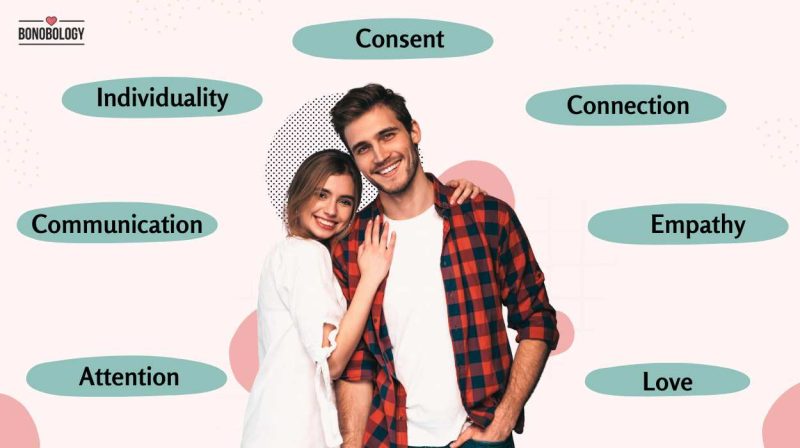



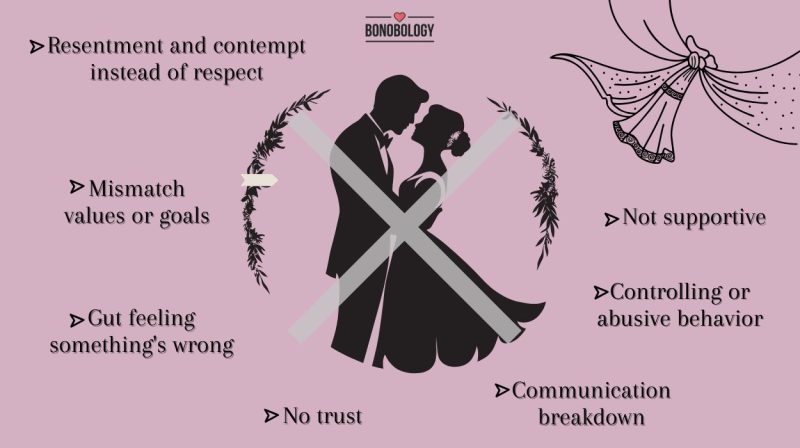

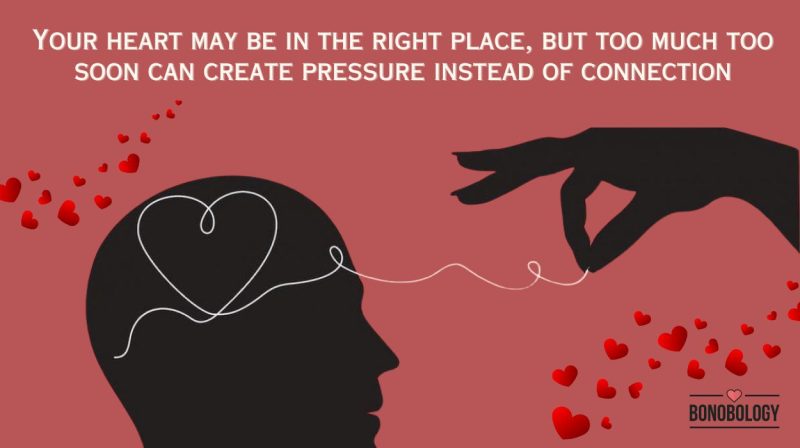






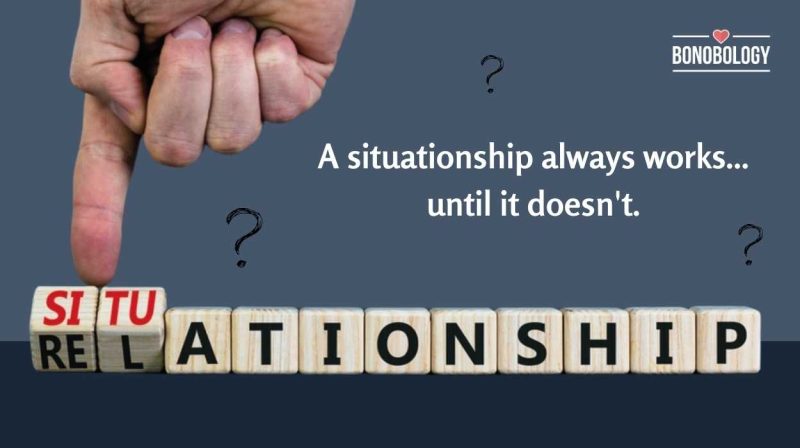



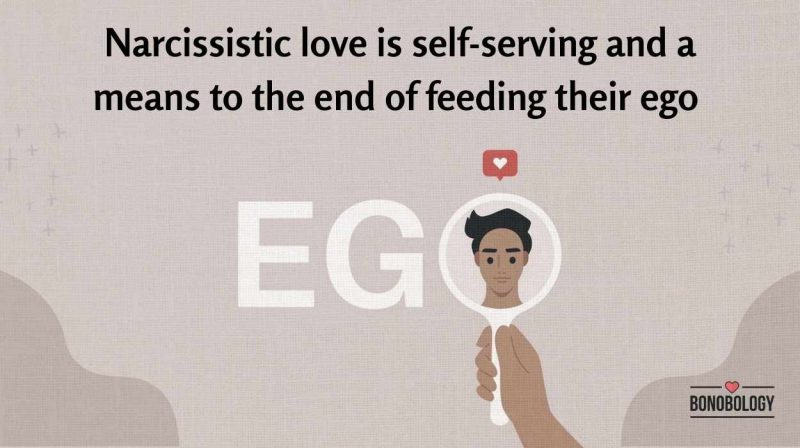

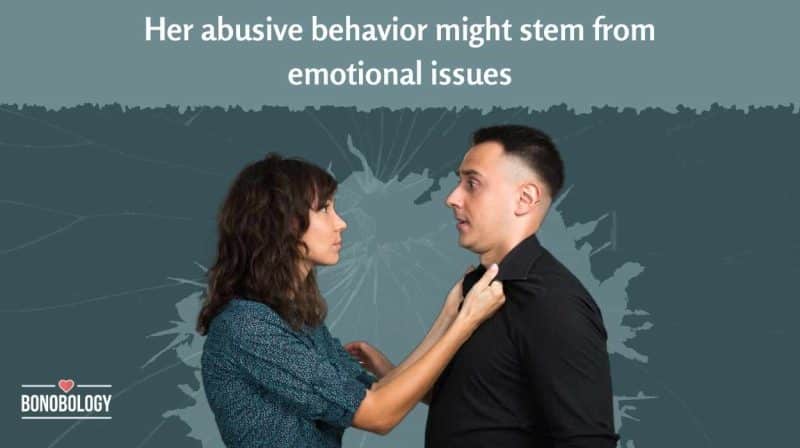
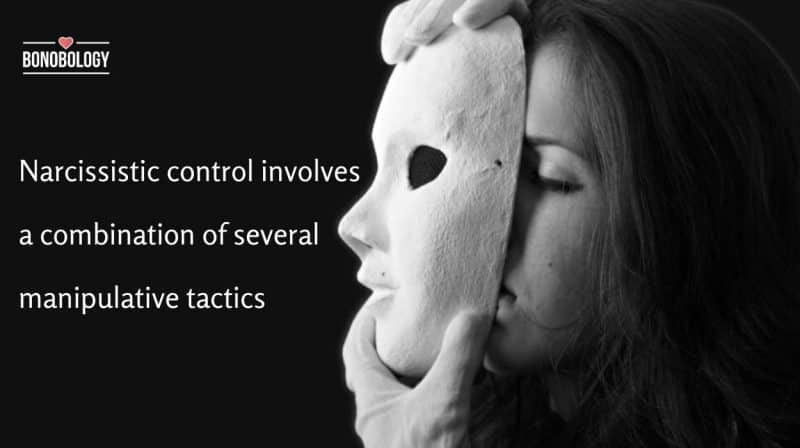

Featured
17 Red Flags In A Relationship To Be Wary Of
What Is A Trophy Wife?
7 Signs You Should Not Marry Him
Signs A Guy Is Obsessed With You In A Bad Way: 15 Red Flags
Unintentional Love Bombing: 9 Ways You May Be Overwhelming Your Partner
13 Signs Of A Hot And Cold Relationship & How To Break The Pattern
21 Subtle Signs You’re Not Really In Love With Your Partner
I Hate My Girlfriend: Why You Feel This Way And What To Do
When Health Challenges Affect Your Relationship Dynamics
5 Harsh But True Signs He’ll Never Marry You
21 Signs That You Are Alone In A Relationship
11 Situationship Red Flags You Should Know About
Why Do I Get Attached So Easily? 9 Possible Reasons and Ways to Stop
How To Respond To DARVO: Expert Lists 7 Strategies
What Is Fexting, And Why Is It Bad For Your Relationship?
Are Narcissists Capable Of Love?
11 Prominent Male Narcissist Traits to Watch For
Why Does My Girlfriend Hit Me? Expert Shares 11 Possible Reasons And Ways To Cope
How Does A Narcissist React When They Can’t Control You?
“My Anxiety Is Ruining My Relationship”: 6 Ways It Does And 5 Ways To Manage It